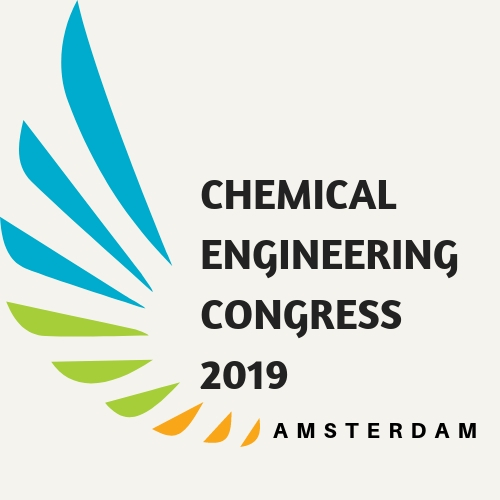Li Wang
Dalian Maritime University, China
Title: CO2 Conversion into High-Value Chemicals and Fuels by a Hybrid Plasma-Catalysis Technology
Biography
Biography: Li Wang
Abstract
Direct conversion of CO
2
into high-value chemicals (CO, CH
3
OH,
CH
3
COOH) remains a challenge due to high stability of CO
2
molecule.
In this study, non-equilibrium plasma is used to strengthen catalytic CO
2
conversion, which realizes CO
2
decomposition to CO, hydrogenation to
CH
3
OH, reforming with CH
4
to CH
3
COOH at about room temperature
and atmospheric pressure, respectively. For CO
2
decomposition to CO
route, MoO
x
-based catalyst gives higher CO
2
decomposition
performance among transitional metal oxides, which was further
improved when Bi doped MoO
x
catalyst. For CO
2
hydrogenation to
CH
3
OH route, the methanol production was strongly dependent on the
plasma reactor setup, and the maximum methanol yields of 11.3% and
methanol selectivity of 53.7% were achieved over Cu/γ-Al
2
O
3
catalyst
using a special water-cooling reactor. Besides, O-deficient NiO
catalyst was recently found to prefer to methanol production
compared to NiO catalyst. For CO
2
reforming to CH
3
COOH route,
conversion of CO
2
with CH
4
into liquid fuels and chemicals in a single-
step catalytic process bypassing the production of syngas is a hot and
challenging issue. In our study, one-step synthesis of acetic acid,
methanol, and ethanol from CO
2
and CH
4
has been achieved at room
temperature (30
o
C) and atmospheric pressure for the first time using a
novel plasma reactor with a water electrode. The total selectivity to
oxygenates was ca. 50-60%, with acetic acid as the major component
at 40.2% selectivity, the highest value reported for acetic acid so far.
Interestingly,
direct synthesis of
acetic acid from CH
4
and CO
2
is an
ideal reaction with a 100% atom economy, but it is almost impossible
to occur via thermal catalysis as this reaction suffers double restrictions
from dynamics and thermodynamics due to excellent stability of CH
4
and CO
2
molecules.

